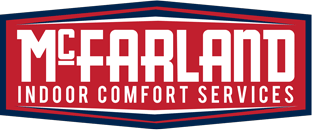Why You Should Hire an HVAC Designer For Your New Home
Building a new home is an exciting project that comes with countless decisions, one of which is how to ensure the heating and cooling systems will be efficient and reliable. When designing your home, it’s easy to focus on aesthetics and layout, but your HVAC system plays a crucial role in your comfort and energy costs. That’s where an HVAC designer comes in—they’re professionals who specialize in creating custom heating and cooling solutions tailored to your specific home needs. Customized HVAC Solutions for Your Home Every home is different, and so are its HVAC needs. An HVAC designer can evaluate the layout, size, and orientation of your new home to determine the most efficient system for heating and cooling. They consider everything from insulation and window placement to room usage and airflow. This attention to detail ensures that your system will work optimally year-round, preventing uncomfortable temperature fluctuations and high utility bills. Maximizing Energy Efficiency Energy efficiency is a major concern for new homeowners, especially with rising energy costs. An HVAC designer can help you select energy-efficient equipment and plan the best installation strategies to minimize energy waste. By choosing the right system and ensuring it’s properly sized and installed,...
View Article